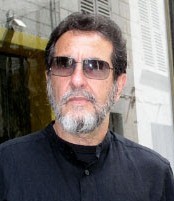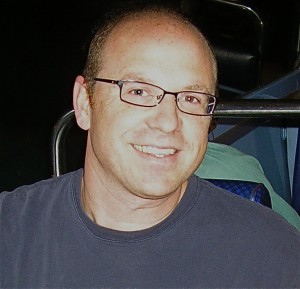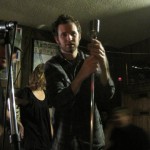 Professor Emeritus of English at Ohio Northern University, Claude Clayton Smith is the author of a historical novel, two children’s books, four books of creative nonfiction, and co-editor/translator of the world’s first anthology of Native Siberian literature. He has published more than fifty poems and a variety of short fiction, essays, and reviews. Four of his plays have been selected for production in competition. His work has been translated into five languages, including Russian and Chinese. He holds a BA from Wesleyan, an MAT from Yale, an MFA in fiction from the Writers’ Workshop at the University of Iowa, and a DA from Carnegie-Mellon. His latest book is Ohio Outback: Learning to Love the Great Black Swamp (Kent State University Press, 2010).
Professor Emeritus of English at Ohio Northern University, Claude Clayton Smith is the author of a historical novel, two children’s books, four books of creative nonfiction, and co-editor/translator of the world’s first anthology of Native Siberian literature. He has published more than fifty poems and a variety of short fiction, essays, and reviews. Four of his plays have been selected for production in competition. His work has been translated into five languages, including Russian and Chinese. He holds a BA from Wesleyan, an MAT from Yale, an MFA in fiction from the Writers’ Workshop at the University of Iowa, and a DA from Carnegie-Mellon. His latest book is Ohio Outback: Learning to Love the Great Black Swamp (Kent State University Press, 2010).
Claude, this opening chapter from Anatomy of Sadness explores Leo Green’s inner turmoil as he sits in a lecture hall classroom and reminisces about events in his life, trying to discover the sigh key to his psyche, the tipping point of his present despair. All the while, halfway across the country, President Kennedy’s motorcade is passing through downtown Dallas. News of his assassination will soon spread to the lecture hall before class is even over. How did you decide to tackle the subject and the premise? Did your own experience and reaction to the news at the time play into the narrative?
I began this novel in the fall of 2013, after viewing a variety of television programs on the 50th anniversary of the Kennedy assassination. It’s an event still vivid in my mind, one that lends a familiar dramatic context to any piece of fiction set in that era. While I was an undergraduate, several classmates (whom I scarcely knew) committed suicide, and I began to wonder what it would have been like to “miss” the upheaval of the assassination due to one’s own personal upheaval. Rather than invent a life for Leo Green, it was easier to draw on my own experiences. Like Leo, I first learned of the assassination while sitting in a college literature class.





